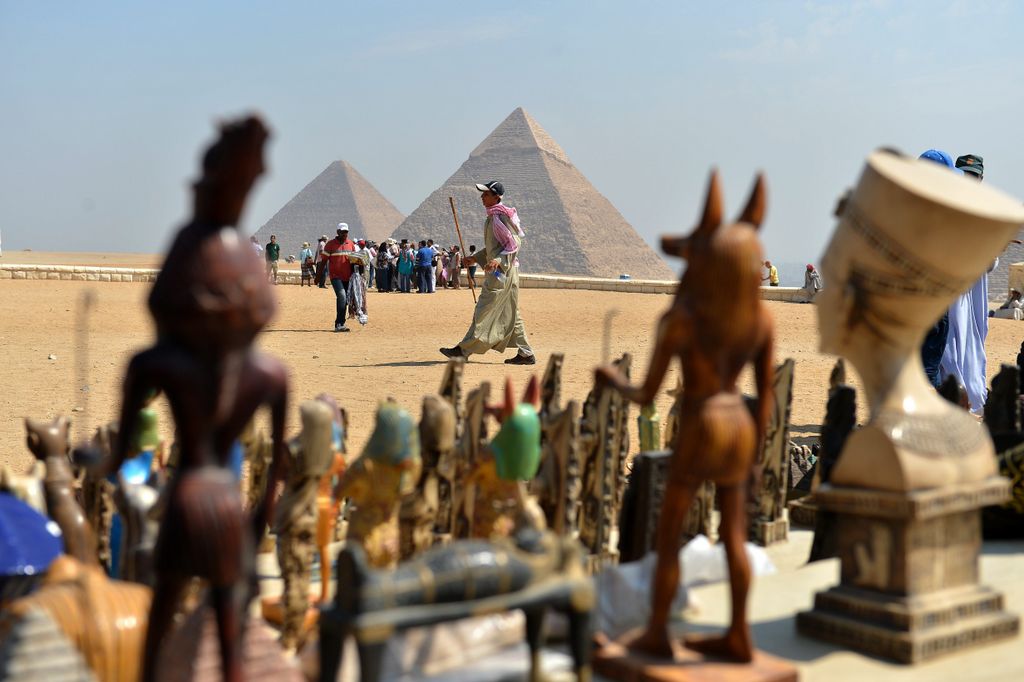
(AFP File Photo)
President Abdel Fattah Al-Sisi vowed to “go after” those who do not “conform to the homeland and are afraid for its country,” in an explicit reference to the Muslim Brotherhood.
He made these statements in a speech at an armed forces’ conference on Tuesday.
“The past two years witnessed chaos because of people who did not stand with dignity, honesty, and understanding for their country’s issue, including religious rhetoric, leading to implanting evil people inside and outside the country within the political adaptations framework,” Al-Sisi said.
Abdullah El-Haddad from the Muslim Brotherhood press office in London replied to what Al-Sisi said, saying: “I believe that the one who plants evil is the mass killing murderer who imprisons, tortures and manslaughters every single political dissent in our beloved country.”
Muslim Brotherhood spokesperson Mohamed Montasser added that there can never be reconciliation between the now dubbed terrorist group and a “butcher and his gang”.
“The Muslim Brotherhood and the Egyptian masses are in a revolt against the criminal military coup which has destroyed the political life of the Egyptian people,” Montasser believes.
Talking about Egyptian-Ethiopian relations, Al-Sisi said that he was surprised that one meeting left a big scar on the Ethiopian people, who would now think Egypt wants to harm them.
A June 2013 meeting on Ethiopia’s Grand Ethiopian Renaissance Dam (GERD) between political figures and ousted president Mohamed Morsi had been aired without notifying those present. During the talks, politician Ayman Nour and Al-Wasat Party Chairman Abu Elela Mady suggested military action against Ethiopia.
Others talked about using actors and sports figures to negotiate, while Al-Azhar representative Sheikh Hassan Al-Shafei suggested embarrassing Ethiopia through international pressure. The statements were widely criticised by Egyptian and Ethiopian social media activists.
Since president Mohamed Morsi’s visit to Addis Ababa in May 2013, conflict had sharpened between Egypt and Ethiopia. This stopped only recently, when the ministers of both countries reached an agreement, later signed by the presidents of Egypt, Ethiopia, and Sudan on 23 March.
“You cannot imagine the reactions I got for the conference two years ago. In Egypt it was regarded as a mistake, but no, these are countries that want to live and pay attention to every utterance regarding their bread and calculate matters,” Al-Sisi said.
He also addressed the Yemeni crisis in his speech, calling for all involved parties to maintain their country’s stability. He also sent a message to the Houthis to take the decision and retreat for the sake of bringing Yemen out of its crisis.
Egypt has declared its support of Saudi Arabia’s attack on Yemen and controlled its flying zone, on Thursday, as Houthi rebel groups called for forming an army to fight the Yemeni president and his government.
Regarding the recent Economic Summit, Al-Sisi pointed out the formation of a committee from the presidency and the cabinet to follow up on all commitments and agreements signed at the summit. The committee would also assess the work throughout a year, with full transparency on the outcomes, whether good or bad.
He called for Egypt’s youth, especially those coming back from Libya and potentially Yemen, to work with the New Capital project, and sacrifice working in positions outside their specialisation fields.
“We need a huge number for this [project] to get it over in the least time. We agreed with [foreigners] coming to work with us to use Egyptian labour, products and raw material,” he said.


